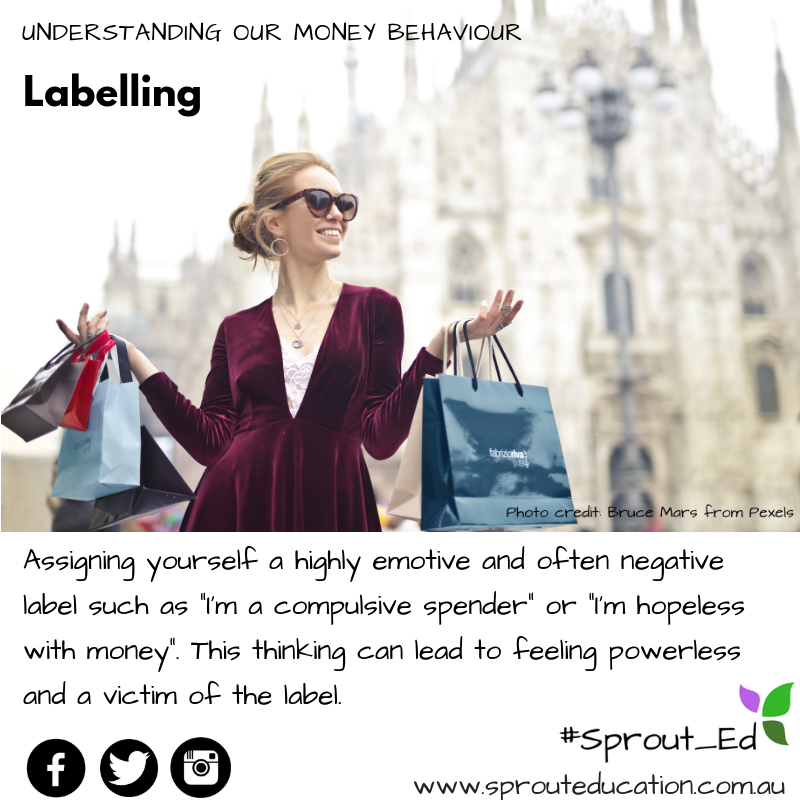Understanding our money behaviour: Labelling
Labelling happens when you assign yourself a highly emotive and often negative label such as “I’m a compulsive spender” or “I’m hopeless with money”.
This thinking can lead to feeling powerless and a victim of the label.
Our thinking and emotions often drive our behaviour, so when we feel this way, it can seem really hard or even impossible to create good money habits.
If you find yourself applying a negative label, try replacing the negative label with a positive message such as “I’m learning to take control of my money”.
Another approach can be to objectively describe the behaviour you observe. For example, you might say "I spent more than my budget on groceries this week" rather than generalising "I'm no good at budgeting". Recognise and celebrate the great things you do with money..Remember that behaviour does not define who you are.
It can help to set yourself small steps to help change your behaviour. You could set yourself a realistic short-term money goal (not just a vague wish) to help you focus on one aspect of your finances, and track your progress towards achieving it. When you do your budget, think of it as an intentional spending and saving tool that gives you control over your finances. It can be counterproductive to think of it like a diet; if you cut out all the fun stuff or you’ll never stick to it.
Another strategy is to find yourself a money buddy who can support you. Sometimes just talking through things with another person can help us see things more objectively, and the extra encouragement and accountability can make all the difference.

